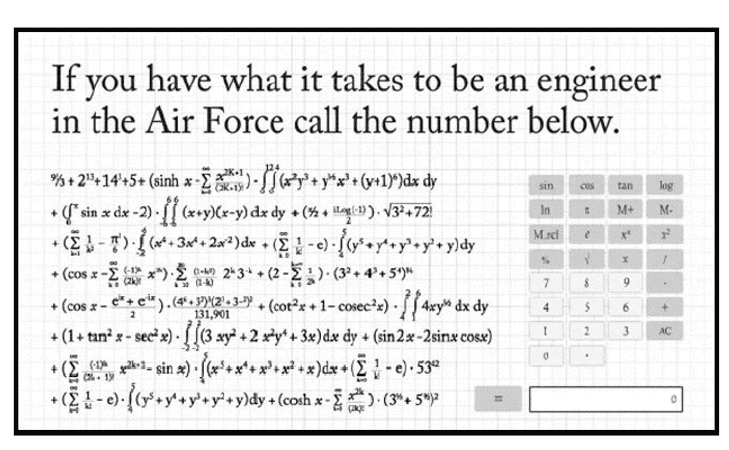Written by: Laura Dempsey
The Air Force Research Laboratory’s Sensors Directorate's usual practices and recruiting techniques found limited success in attracting new personnel with the needed expertise and technical background. Their hiring process also took more time than AFRL’s average because of their unique work requirements. Wright Brothers Institute (WBI) was enlisted to find ways to both expedite the recruiting/hiring process and to define new and innovative approaches to recruiting qualified applicants in research and development. The Sensors Directorate was experiencing a demand for scientists and engineers and sought new ways to attract and interact with highly capable talent pools.
WBI is AFRL’s go-to for innovative thinking, finding “outside the box” solutions for issues across the board. WBI, working with Sensors leadership, analyzed the issue and decided to employ a company with expertise in branding.
WBI contracted with LPK, a brand design and innovation agency in Cincinnati. LPK was uniquely situated to provide the necessary background, data-based design/branding, speed to market, and flexibility needed by AFRL to accomplish the mission. LPK has a long history of basing designs and branding on a wealth of data collected for across multiple industries that is based in statistics and scientific thinking.
The first step was to identify the target audience. Generation next? Boomers? Millennials? Next-generation millennials? What the research found is that people in the desired target (next-generation millennials) were both idealistic AND concerned with financial stability while trying to forge a good work-life balance. One of the findings is that millennials have much higher confidence in the military than they do in the federal government and corporate America. This finding was then incorporated into the recruitment strategy, approach and pitch.
People seeking careers were not just going for the money, which turned out to be a good thing -- the Air Force cannot complete with tech giants such as Google and Apple on salary alone. What the Air Force can offer is stability and control over career, which is a natural fit for next-generation millennials.
In rebranding the Air Force Research Lab as a world-class enterprise with a less pressurized environment, the recruiters found a level of success both in recruiting and hiring to fit their specialized requirements. The people hiring for classified positions were able to choose from among many qualified resumes and were able to pass along several applicants to non-classified job openings.
Bob Lee, WBI’s Open Innovation Project Manager, has experience with innovation, and found an interesting side effect, “which always happens in innovation,” he said. As the branding took hold, posters were designed for the closed, classified environment, many highlighting the mystique of classified work.
Branding helped to create specialty mugs and posters with sayings such as ‘Tell your mother you work on (redacted).’ The team leads stated “The morale certainly rose! The people got their swagger back – instead of being an isolated, forgotten group, they’re now this mysterious group doing secret things.”

The recruitment effort was found to be so successful that WBI and AFRL are now looking at what it takes to retain the workers it worked so hard to hire.
“WBI connects people so they can do something different,” Lee said. “One of our mandates from AFRL is to help add innovation in workforce development, so we can try something different and see how it works.” In this project it has helped to add new insight to a longstanding problem.
